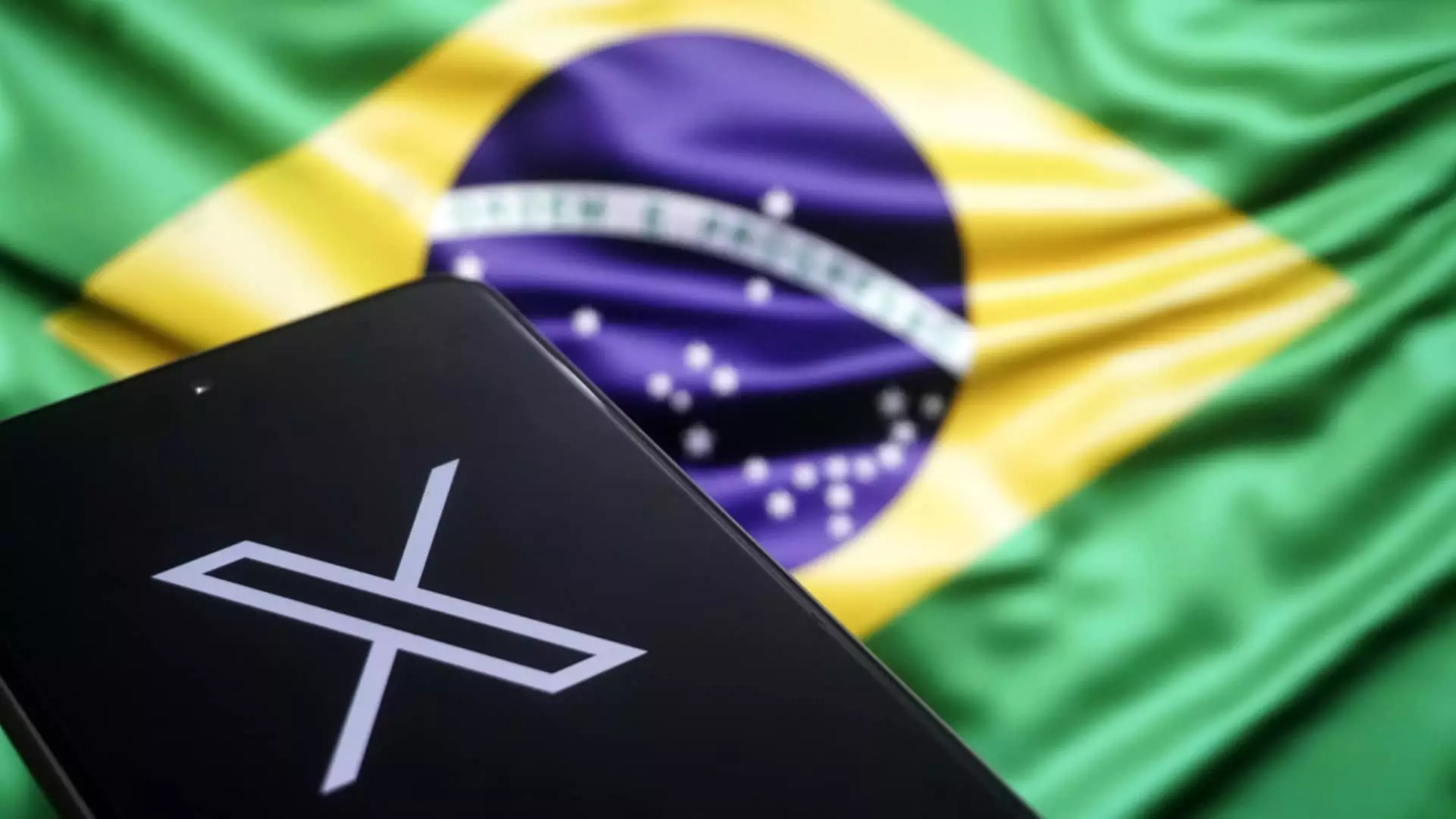Elon Musk’s social media platform, X, has officially resumed its operations in Brazil following a lengthy confrontation with the country’s highest legal authority. The complexities of this conflict were primarily orchestrated by Minister Alexandre de Moraes, who enforced regulations aimed at curbing malicious online activity. The suspension of X on August 31 revealed the delicate balance between freedom of expression and adherence to national laws. Musk’s approach, which emphasized a defiance of state regulations, drew considerable scrutiny and ultimately triggered legal repercussions.
In a statement, X expressed its commitment to restoring services in Brazil, emphasizing the significance of the platform for millions of users. The company reiterated its intention to uphold free speech, albeit within the confines of the law. However, it raises a critical question: how does one reconcile the notion of absolute freedom of expression with governmental mandates designed to protect citizens from harmful content? The Brazilian government’s efforts to combat hate speech and misinformation reflect a growing trend worldwide, where social media companies face mounting pressures to regulate harmful narratives on their platforms.
The Context of the Suspension
The roots of the suspension lie in Musk’s refusal to adhere to judicial orders aimed at removing specific accounts and content identified as violating Brazilian law. This stance not only resulted in significant backlash but also showcased the tensions between tech giants and regulatory bodies. Musk’s initial approach—to abandon physical operations in Brazil rather than comply—portrayed a miscalculation of the legal landscape and the expectations of the Brazilian judiciary. As a powerful international figure, Musk seemingly underestimated the consequences of ignoring local regulations.
Reports indicated that the pressure from investors linked to Musk’s ventures ultimately compelled X to align with Brazilian law. The looming threat of daily fines and disruption of operations highlighted the precarious position of X in a highly competitive landscape, especially as rival platforms like Bluesky and Threads capitalized on the absence of X, rapidly gaining traction among Brazilian users. These developments underscore the necessity for companies like X to navigate complex regulatory environments effectively, lest they risk losing their market share to more compliant competitors.
The reactivation of X in Brazil signals a critical juncture for the platform as it strives to regain user trust. Moving forward, the necessity for a legal representative in Brazil becomes paramount to navigate the intricacies of local laws better and restore the company’s image. The Brazilian experience serves as a cautionary tale for tech companies, illustrating the potential ramifications of ignoring regulatory frameworks.
While Musk’s engagement with Brazil may resume, the lessons learned from this tempestuous period will likely shape future strategies for X and other platforms operating within complex legal landscapes. The intricate interplay between technology, law, and consumer trust continues to evolve, marking a challenging yet essential path ahead for influential social media companies.


Leave a Reply